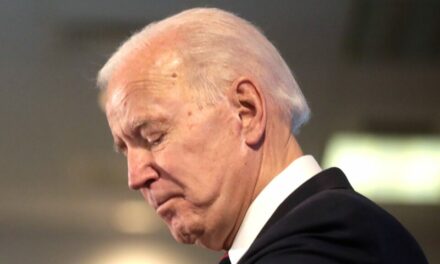We support our Publishers and Content Creators. You can view this story on their website by CLICKING HERE.
On paper, Scott Bessent appears to be a fine choice for Treasury Secretary in the incoming Trump administration. Indeed, who could be better qualified for the job than somebody who is a Yale University graduate, has a good grasp of economic history, and has had a successful record as one of George Soros’s macro-economic traders and as a hedge fund owner?
The key question, however, is whether he will succeed in convincing President-elect Trump to back down from the rash economic promises he made on the campaign trail that threaten to lead us down a path of economic ruin. While the jury is still out, Mr. Bessent has given little indication that he has either the willingness or ability to dissuade Mr. Trump from fulfilling his campaign promises.
President of the United States Donald Trump speaking at the 2018 Conservative Political Action Conference (CPAC) in National Harbor, Maryland.
Start with the issue of tax cuts. In earlier pronouncements, Mr. Bessent seems to endorse fully Mr. Trump’s view that radical tax cuts need to be made. In particular, he agrees that the 2017 Tax Cut and Jobs Act needs to be extended and that both social security benefits and tips need to be made tax-exempt.
Never mind that Mr. Bessent will be inheriting a highly compromised budget situation that is in desperate need of correction in the form of public spending cuts and tax revenue enhancement. According to the Congressional Budget Office, on the basis of present policies, the budget deficit will remain at around 6 percent of GDP for many years to come and by 2034 the public debt will rise to over 120 percent of GDP. That would be a higher level than that which prevailed immediately after the Second World War. The last thing that the country needs is aggressive tax cuts that will only add to the public debt. Yet that is what the implementation of Mr. Trump’s tax cut plan would involve. According to the Committee for a Responsible Budget, over the next decade, the Trump tax cut proposals would add around $7 ¾ trillion to the national debt.
As an experienced hedge fund manager, Mr. Bessent is no stranger to the actions of the bond vigilantes or to exchange rate crises. Yet that is what he would risk having occur on his watch if he fails to persuade Mr. Trump to reign in his aggressive tax cut proposals that would cause the budget deficit to balloon.
As a student of economic history, Mr. Bessent must be aware of how destructive the 1930 Smoot-Hawley tariff act was to economic prosperity both at home and abroad. Yet, it remains to be seen whether he will be able to dissuade Mr. Trump of the appropriateness of imposing a 60 percent tariff on all imports from China and a 10-20 percent tariff on imports from the rest of the world. Failure to do so would risk adding to inflationary pressures and triggering trade retaliation by our trade partners. That, in turn, could lead us down the economically destructive path of beggar-thy-neighbor policies of the 1930s.
One more area where it remains to be seen whether Mr. Bessent will be able to successfully stand up to his boss relates to immigration policy. On the campaign trail, Mr. Trump repeatedly committed himself to deporting up to 10 million undocumented immigrants from the country. If that were to occur, supply disruptions must be expected in both the agricultural and construction industries that are heavily dependent on undocumented immigrant labor. That is the last thing that we need at a time that the battle over inflation is yet to be won.
In short, the good news is that we will have a Treasury Secretary who has to understand the dangers of President-elect Trump’s economic plan. The bad news is that it is all too likely that a condition of Mr. Bessent’s nomination to the job was that he broadly agrees with Mr. Trump’s economic plan.
Let us hope for both Mr. Bessent’s sake and ours that he surprises us and has the ability and courage to get Mr. Trump to make an economic policy U-turn.
About the Author: Dr. Desmond Lachman
American Enterprise Institute senior fellow Desmond Lachman was a deputy director in the International Monetary Fund’s Policy Development and Review Department and the chief emerging-market economic strategist at Salomon Smith Barney.

 Conservative
Conservative  Search
Search Trending
Trending Current News
Current News 





